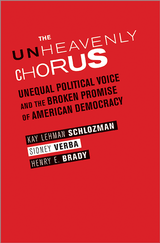
talks about how the norms of higher education have shifted. In noting a recent report Unseen Disadvantage, Boyte offers that higher education today "embodies individualistic, hypercompetitive achievement norms which contribute to inequality in a number of ways."
In my own recent discussions with colleagues from various institutions of higher education, the refrains echo this claim. Boyte, editor of a forthcoming book from Vanderbilt University press, Democracy's Education: Public Work, Citizenship, and the Future of Colleges and Universities, has been a leader in examining the relationship between education and citizenship and the shortcomings, especially in higher education. Boyte hasn't just feverishly studied the role and impact of higher education on community development, he has been a leading innovator of attempts to shift approaches used to connect students to their role as citizens while enhancing their citizenship skills.
The emphasis here on inequality is important. It reminded me of the important research published in 2012 by three leading political scientists, Kay Lehman Schlozman, Sidney Verba, and Henry Brady in Unheavenly Chorus: Unequal Political Voice and the Broken Promise of American Democracy.

In this hefty, 693 page multiple award winning tome, Schlozman and colleagues review a huge number of studies and discern, what a reasonable person might easily infer, that the growing economic inequality parallels a growing political inequality.A review of this work by the Sunlight Foundation provides a nice synopsis along with some of the data and graphs from the book.
Boyte and others, including a forthcoming report this fall from professors Martine Gillens and Benjamin Page that as one reviewer of their study, Professor Allan J. Lichtman notes,
"The analysts found that when controlling for the power of economic elites and organized interest groups, the influence of ordinary Americans registers at a “non-significant, near-zero level.” The analysts further discovered that rich individuals and business-dominated interest groups dominate the policymaking process. The mass-based interest groups had minimal influence compared to the business-based interest groups."[
That so much of our culture, including most of those busy competing in the fields of higher education, are oblivious to this growing pile of evidence around the economic, social, and political devastation of inequality seems hard for this author to believe.
Thanks to Boyte on others trying to shine a bright light on a significant system failure. But when you have those who believe in the myths of neoliberalism making decisions, while ignoring the realities of those impacts, we can't expect much different outcomes.
Time to bring in fresh thinkers, like Boyte to help our leaders turn these ships around. Or if they are unwilling to do so, we need to choose new leadership for the ivy towers.

No comments:
Post a Comment